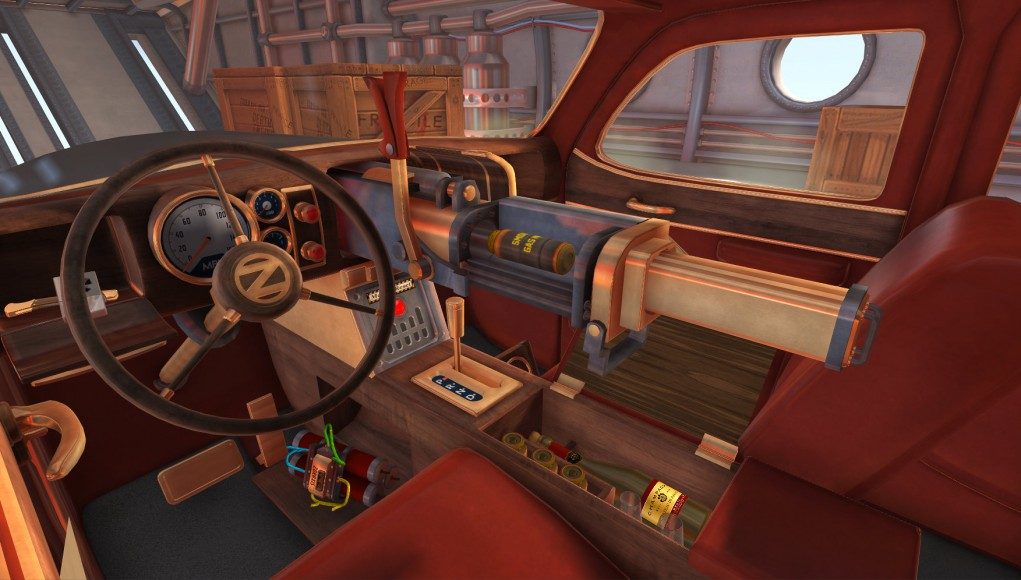 Jesse Schell has been involved in virtual reality for over 20 years, and he’s also the author of the popular The Art of Game Design: A Book of Lenses. He was able to combine his background in VR and game design at Schell Games to create the very popular I Expect You to Die, which has been the top-ranked experience at Oculus for the last three months. It also took home three Proto Awards including the top prize for Best Overall VR Experience, Best Gameplay and Best Interactive Design. I had a chance to catch up with Jesse at Oculus Connect to talk about some of VR design principles that has helped I Expect You to Die to do so well.
Jesse Schell has been involved in virtual reality for over 20 years, and he’s also the author of the popular The Art of Game Design: A Book of Lenses. He was able to combine his background in VR and game design at Schell Games to create the very popular I Expect You to Die, which has been the top-ranked experience at Oculus for the last three months. It also took home three Proto Awards including the top prize for Best Overall VR Experience, Best Gameplay and Best Interactive Design. I had a chance to catch up with Jesse at Oculus Connect to talk about some of VR design principles that has helped I Expect You to Die to do so well.
Listen:
One of the key takeaways that Jesse shared is that you have to design for presence first, and that you need to avoid anything that might break presence. He also went against Oculus’ own best practices and designed the experience to work primarily with a mouse interface. He talks about the importance of this decision in terms of feeling engaged in the world, and some of the counter-intuitive insights that they made including that the brain could make sense of looking behind you and pushing the mouse in the opposite direction in order to reach out. Despite the success of I Expect You to Die, Oculus still recommends developers to not rely upon a mouse interface.
One of the important aspects of designing a stand-up VR experience is to avoid proprioceptive disconnects that might prevent the user from believing the scene. Jesse said that a huge inspiration for him was Daniël Ernst’s Blocked In because sitting at a desk was such a familiar situation for so many people. That inspired him to create the setting for I Expect You to Die to be sitting in a car because it’s something that is so familiar to so many people.
When designing I Expect You to Die, there was some internal debate as to whether or not a good VR experience could be designed that didn’t have any motion. They wanted to feel like a superhero, and then realized that there are a lot of tropes about superheroes escaping from impossible situations, and they used these familiar situations to create an engaging and fun escape room type of scenario. Jesse also says that his team got a lot of inspiration from different real-life escape room games, and that Schell Games is actually in the process of creating an escape room that blends collaborative physical puzzles with a virtual world.
Jesse says that social VR is going to be the aspect of VR that is going to be the most compelling. His dream is to build a VR MMO, and he talks about some of his early work in VR in building out some of the technology to make that happen. He says that he’s made a detailed plan, but that it’d take about $10 million dollars worth of investment in order to make it happen so he’s not expecting it to happen unless he’s able to find someone to back it.
Become a Patron! Support The Voices of VR Podcast Patreon
Theme music: “Fatality” by Tigoolio







